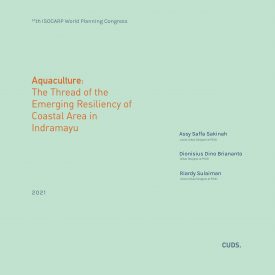The Study of Thermal Comfort in Transforming Residential Area in Bandung using ENVI-met Software. Case Study: Progo Street
- Location
- Client
- Type
- Size
- Awards
Author: Tubagus M Aziz Soelaiman, Woerjantari K Soedarsono, and M Donny Koerniawan
Presented in: the 3rd International Conference of Habitechno in Institut Teknologi Bandung (ITB), West Java, Indonesia.
Year: 2017
Citation: Tubagus M Aziz Soelaiman et al 2018 IOP Conf. Ser.: Earth Environ. Sci. 152 012036
Bandung has a high potential in attracting tourists. This potential impact on building function near tourist attraction that can transform residential uses into commercial uses. Progo Street and its surrounding area used as the case study, which is close to Gedung Sate and Riau Street as tourist destinations in Bandung. Moreover, this transformation is also reinforced by the spatial planning policies in Bandung, known as RTRW and RDTR, said that this area will be fully non-residential area. This condition in some cases could affect thermal comfort. This paper provides the changes of thermal comfort phenomenon that occurs using EnviMet software. The study compares Predicted Mean Voted (PMV) as thermal comfort indicator between existing and Bandung detailed spatial plan (RDTR) condition. The result shows that the PMV value of current condition is higher than future planning, nonetheless the planned area will be changed into higher non-residential buildings and less greeneries. Some environmental factors that are used to calculate PMV such as air temperature, mean radiant temperature, humidity, and wind speed are also examined to find out what makes the plan more comfortable than the existing. Simulations using ENVI-met software could be considered in making more objective planning policy in the future.
Access the full paper here: https://iopscience.iop.org/article/10.1088/1755-1315/152/1/012036

